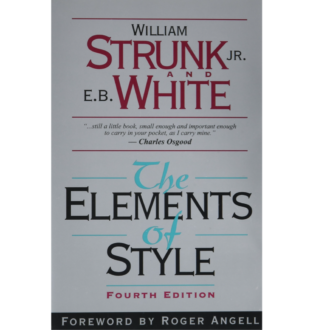
As regular readers of this blog will know, several other PCURs and I are in the throes of writing our theses. Personally, I’ve been thinking a lot about writing: what makes it effective, what strategies are successful, and what I can do to improve my own. I am by no means an expert writer, but in this post I will share a few tactics that have proven useful as I progress towards a submission-ready senior thesis. While this reflection stems from my own thesis experiences, I hope that writers of all class years and departments might find in it some principles of general applicability.
First, a tip I’ve shared on this blog before, but one that is worth repeating often: write as much as you can, no matter what. You might not feel like you have anything to say, or that you’ve done enough research. But if you start writing, I promise you will find something to say. It might not be brilliant. It might not make it into your final draft. But it will give you something to build on.
Once you’ve started writing, do not be afraid of editing. Read your paper aloud, or at least read it mentally to yourself as if you were reading it like a speech. This will help you identify interruptions to the flow of your writing, places that need additional attention or revision. Remember: You do not have to keep all of your words. They can be replaced by better ones.
I know deleting large chunks of text can be difficult. So, if you know that something doesn’t quite belong—be it a paragraph or ten pages—but you aren’t yet ready to banish it to the digital dustbin, create another document and copy/paste it in. Your main document will feel less cluttered, and you will still retain the ability to look back on ideas from your previous drafts. Then, if you choose to later, you can reincorporate older material into the latest version of your project. Alternatively, you can treat older draft excerpts like notes and use them as the basis for a total re-write of the idea you want to communicate.
Writing well requires writing often, but it also requires taking breaks from writing to find inspiration. Below are two simple suggestions for how to do this.
The first is to consult a piece of your favorite writing or something by a favorite author. Pick up a volume of prose or poetry and bask in the polished eloquence of someone else’s finished product. Remember that they too had to endure the difficult process of going from no words to many words.
Lately, I’ve been inspired by the writings of Ralph Waldo Emerson, C.G. Jung, and the Trappist monastic Thomas Merton. Each of them has distinctive stylistic strengths that I respect. For instance, Jung writes about complex psychological topics with an admirable analytic precision, while Merton is a master of the well-structured paragraph. But whoever you end up reading, I recommend going slowly through their work, with intention. Savor their literary flavor, and soon you might begin to taste it in your own writing.
My second suggestion is to consult a style guide. One classic, recommended and assigned to me by my rhetoric professor, is Strunk and White’s Elements of Style. It’s an oldie and a goodie. It contains both concrete rules of composition and grammar as well as more general advice on writing well. Since it’s a reputable style guide, it is also a (portable) model of good writing, with plenty of passages that are bound to inspire.
Writing is a skill that most of us will use for the rest of our lives. It’s important both to throw yourself into it, and occasionally to step back from it. By reading great writing and reflecting on what makes it great, you can write with deliberation in a voice of your own creation. Come thesis time (if it hasn’t already begun), you’ll be glad to have put in the effort.
–Shanon FitzGerald, Humanities Correspondent

